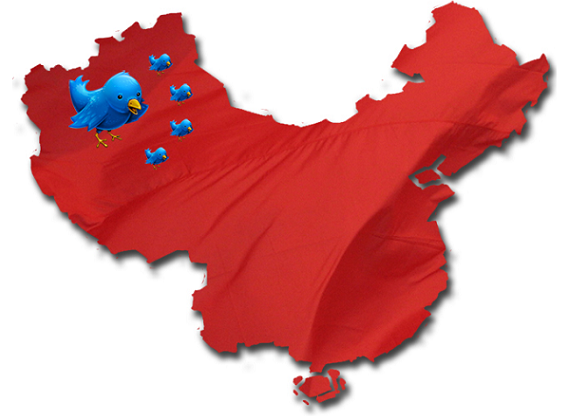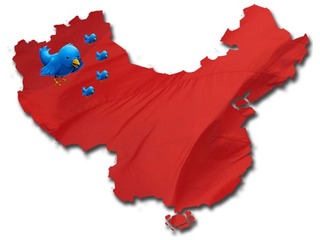

Editor’s Note: Our annual Vator Splash Spring 2016 conference is around the corner on May 12, 2016 at the historic Scottish Rite Center in Oakland. Speakers include Nigel Eccles (CEO & Co-founder, FanDuel), Andy Dunn (Founder & CEO, Bonobos), Mitch Kapor (Founder, Kapor Center for Social Impact); Founders of NextDoor, Handy, TubeMogul; Investors from Khosla Ventures, Javelin Venture Partners, Kapor Capital, Greylock, DFJ, IDG, IVP and more. Join us! REGISTER HERE.
China is a tough nut to crack. So many companies want to tap its huge number of users, but the country is a minefield for them to walk.
Take Twitter for example. Even though it has officially been banned in China since 2009, it still has plenty of users who have managed to skirt around the government’s censorship of the site. And they are not happy with Twitter right now, accusing the company of cozying up to the government.
Last week the company appointed Kathy Chen as its first Managing Director of China. It didn’t take long for users to freak out, though, when it came to light that she had started her career working for the Chinese military in the 1980s.
Twitter has become an alternative to government-run services like Weibo, which has more than 236 million monthly active users who are under strict controls over what they can, and cannot say. Twitter allows Chinese users the type of freedom they are otherwise not afforded, and there seems to be real concern about that being taken away.
As a result, multiple Chinese Twitter users have begun to speak out about the appointment, expressing fear over potential censorship.
Tweets such as, “It’s not a place for CCP propaganda, go away” and “Stop deals with Party mouthpieces local Chinese can’t easily access #censorship #hypocrisy,” began popping up in the wake of the news, Bloomberg reported.
Chinese activists have also began speaking out about Chen.
“Twitter has vast amounts of users’ data. Given that U.S. tech firms have in the past kowtowed to China, and given the military background of Kathy Chen, it’s only reasonable for the Chinese users of Twitter to be worried about the future,” said He Qinglian, a Chinese political activist.
“It’s only reasonable to question the direction of a company by its personnel decisions,” said Wen Yunchao, a U.S.-based Chinese activist.
It’s easy to see why Chinese citizens would be so worried, though Chen doesn’t seem to have been involved with the Chinese military, or government, for a couple of decades now.
In the late 1980s, the Chinese government often directed Chinese university graduates into their first jobs. Because of her computer science degree, Chen was assigned as a junior engineer at the People’s Liberation Army. When the Chinese economy further opened up with reform in the early 1990s, she chose switched to the private sector in 1994.
Chen was hired by Computer Associates at the end of 1999 to lead a JV company. The minority shareholder and local partner in the JV was indirectly owned by the Ministry of Public Security. She solely represented Computer Associates’ interest in the JV, though, and she never worked for the Ministry of Public Security. In her career, Chen has also worked for Microsoft and Cisco.
Despite the concern, Twitter is sticking by Chen.
“Under Kathy Chen’s leadership, we will provide more of Twitter Inc.’s enterprise offerings – such as advertising, customer service, data analytics and developer platform – to Chinese businesses and startups to help them reach a global audience,” a Twitter spokesperson told me.
“Kathy’s extensive work experience over the past 20+ years, from CA to Microsoft to Cisco, has been spent on connecting China to the world by working with global US MNCs to sell and provide support for enterprise IT solutions to large Chinese businesses and SMBs.”
There are a number of reasons that Twitter, and many other tech companies would like to be in China, not least of which is that it happens to have the largest number of Internet users on the planet, with 720 million. That is a prospect that I can’t imagine any company passing up, especially Twitter which has had so many problems growing its users numbers.
However this is a reminder of how difficult it can be to navigate a country where censorship runs wild and even the hint of government ties can scare off users.
The condemnation won’t just come from Chinese users, either. Just look at what happened to LinkedIn, which was able to strike a deal to enter the country in 2014.
After LinkedIn made its China announcement, the company also came under fire after it admitted that it was only able to operate there because it complied with Chinese censorship laws. LinkedIn CEO Jeff Weiner defended the decision in a blog post written shortly after.
“As a condition for operating in the country, the government of China imposes censorship requirements on Internet platforms. LinkedIn strongly supports freedom of expression and fundamentally disagrees with government censorship,” Weiner said.
“At the same time, we also believe that LinkedIn’s absence in China would deny Chinese professionals a means to connect with others on our global platform, thereby limiting the ability of individual Chinese citizens to pursue and realize the economic opportunities, dreams and rights most important to them.”
(Image source: blog.jonahkessel.com)
















